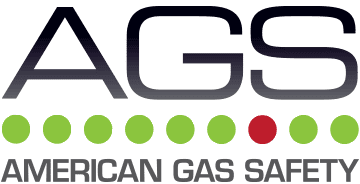Introduction:
Science laboratories are bustling hubs of experimentation and innovation, where students and researchers alike delve into the mysteries of the natural world. However, amidst the excitement of discovery, it’s paramount to prioritize safety. One integral aspect of ensuring laboratory safety is the implementation of robust utility controls. These controls not only streamline operations but also act as a shield against potential hazards that could jeopardize the well-being of occupants and the integrity of the facility itself.
Understanding the Dangers:
Laboratories, by their very nature, house various materials and processes that can pose significant risks if not managed properly. From volatile chemicals to pressurized gas lines, the potential for accidents is ever-present. Gas leaks, for instance, can lead to fires, explosions, or harmful exposure to toxic fumes, putting lives at risk and causing extensive damage to property.
The Importance of Utility Controls:
Utility controls serve as the first line of defense against these dangers. They provide operators with the means to swiftly and effectively manage essential utilities such as gas lines, water, and electricity. By centralizing control and automating certain processes, these systems minimize the likelihood of human error and enable rapid response in case of emergencies. Moreover, they instill confidence among occupants, fostering a culture of safety and accountability within the laboratory environment.
Typical Areas You Would Need Utility Controls:
Utility controls find application in various areas within science laboratories, spanning educational institutions from kindergarten to universities. In K-12 settings, where students are just beginning to explore the wonders of science, these controls are instrumental in fostering a safe learning environment. Similarly, in college and university laboratories, where research endeavors are more complex and diverse, the need for robust utility controls becomes even more apparent. From chemistry labs with intricate gas distribution systems to biology labs housing sensitive equipment, every corner of the facility stands to benefit from the implementation of reliable utility controls.
The AGS Range. Ensuring Safety and Efficiency:
At American Gas Safety (AGS), we understand the critical role that utility controls play in laboratory safety. That’s why we’ve developed a comprehensive range of solutions tailored to meet the unique needs of science facilities across all educational levels. Our utility control systems are equipped with advanced features such as emergency gas shutdown, automatic timeout, and gas leak detection, providing unparalleled protection and peace of mind.
With our intuitive controllers, operators can quickly and confidently manage utilities without the need to search the room for manual valves or switches. In the event of a gas leak or other emergency, our systems spring into action, shutting down utilities and alerting personnel to the potential hazard. Moreover, automatic timeout functionality ensures that utilities are safely deactivated during out-of-hours periods, minimizing the risk of accidents occurring when the lab is unattended.
Conclusion:
In the realm of science education and research, safety must always be a top priority. By investing in robust utility controls, educational institutions can create environments where curiosity thrives without compromising on the well-being of students, faculty, and staff. With the AGS range of utility control systems, laboratories can operate with confidence, knowing that they are equipped to handle any situation that may arise. Together, let’s build a safer future for scientific exploration. Contact American Gas Safety or your local representative here for further information.

